The Chorus (French: Les Choristes) is a 2004 European drama film directed by Christophe Barratier. Co-written by Barratier and Philippe Lopes-Curval, it is an adaptation of the 1945 film A Cage of Nightingales (La Cage aux rossignols), which in turn was adapted by Noël-Noël and René Wheeler from a story by Wheeler and Georges Chaperot. The story is based on the origins of the boy choir The Little Singers of Paris who were the main interpret in A Cage of Nightingales. The original French title translates as "The Choristers" or "The Choirboys", not "The Chorus".
| The Chorus | |
|---|---|
American release poster released by Miramax Films | |
| Directed by | Christophe Barratier |
| Produced by |
|
| Written by |
|
| Based on | A Cage of Nightingales |
| Starring |
|
| Music by | Bruno Coulais |
| Cinematography |
|
| Edited by | Yves Deschamps |
Production company | Vega Film Banque Populaire Images 4 CP Medien AG Canal+ Centre National de la Cinématographie (CNC) Dan Valley Film AG France 2 Cinéma Galatée Films Novo Arturo Films Pathé Renn Productions Procirep |
| Distributed by | Pathé |
Release date |
|
Running time | 96 minutes |
| Country |
|
| Language | French |
| Budget | $5.3 million |
| Box office | $83.6 million |
The plot involves the widely successful orchestra conductor Pierre Morhange (Jacques Perrin), who returns to France when his mother dies. He reminisces about his childhood inspirations when he and his former classmate Pépinot (Didier Flamand) read the diary of their old music teacher Clément Mathieu (Gérard Jugnot). In 1949, a young Morhange is the badly behaved son of single mother Violette (Marie Bunel). He attends the boarding institution for "difficult" boys, Fond de L'Étang ("Bottom of the Pond"), presided over by strict headmaster Monsieur Rachin (François Berléand). New teacher Clement Mathieu brightens up the school and assembles a choir, leading to the discovery of Morhange's musical and physical talents and a transformation in the children.
At the 77th Academy Awards, The Chorus was nominated for Best Foreign Language Film and Best Original Song (the latter for "Vois sur ton chemin", listed as "Look to Your Path").
Screenplay
In 1999, Pierre Morhange, a conductor performing in the United States, is informed that his mother has died before a concert. After the performance in which he conducted the Künstlerleben Waltz by Johann Strauss II, he returns to his home in France for her funeral. An old friend named Pépinot arrives at his door with a diary which belonged to their teacher, Clément Mathieu. They proceed to read it together.
In 1949, fifty years earlier, Clément Mathieu, a failed musician, arrives at Fond de l'Étang ("Bottom of the Pond"), a French boarding school for "troubled" boys, to work as a supervisor. At the gates, he sees a young boy, Pépinot, waiting for Saturday at the school's gate, where he says his father will pick him up. The viewers later learn that his parents were killed in the Second World War, but Pépinot does not know about this. Mathieu discovers the boys being ruthlessly punished by the headmaster Rachin, and attempts to use humour and kindness to win them over. When a booby trap set by Le Querrec injures the school's elderly caretaker Maxence, Mathieu keeps the culprit's identity from the headmaster, while encouraging him to nurse the caretaker during his recovery. On discovering the boys singing rude songs about him, Mathieu forms a plan: he will teach them to sing, and form a choir as a form of discipline. He groups the boys into their voice types, but one student, Morhange, refuses to sing. Mathieu catches Morhange singing to himself, discovers he has a wonderful singing voice, and awards him solo parts on the condition that he behaves.
Morhange's single mother, Violette, arrives at the school. When Mathieu goes to explain that Morhange cannot be visited because he has been locked up as a punishment, he finds himself feeling sorry for, and attracted to, the boy's beleaguered mother, and instead tells her that Morhange is at the dentist. Meanwhile, a cruel, "perverted" boy named Mondain (played by Gregory Gatignol) arrives and begins causing trouble by bullying the others and generally being rebellious. After stealing a watch, he is locked up for two weeks. The choir is improving rapidly with Morhange as its lead soloist; the children are happier, and the faculty less strict—even Rachin begins to loosen up, playing football with the boys and making a paper aeroplane. After Mondain is released from lock-up, he runs away. At the same time, all the school's money disappears. Rachin beats Mondain, who in turn attempts to strangle the headmaster. Rachin hands him over to the police, despite not knowing the location of the stolen money, and disbands the choir. This causes Mathieu to teach his choir "underground," practicing at night in their sleeping chamber.
Mathieu continues to meet Morhange's mother, who is unaware of his attraction to her. He plans to help her son win a scholarship to the music conservatory in Lyon. One day she blithely informs him that she has met someone: an engineer. Mathieu is dejected, but expresses his strained happiness as he watches her leave in the engineer's car. The Countess, a sponsor of the school, finds out about the choir: they perform before her and others, and Morhange enchants the audience with his solo. Mathieu discovers that another boy, Corbin, stole the money that Mondain was accused of taking. Despite this, Rachin refuses to accept Mondain back at the school—Mathieu is upset at this injustice. When Rachin departs to accept an award from the board after taking credit for the choir, Mathieu and Maxence rebel by taking the boys on a paper chase. While they are out, Mondain returns and sets fire to the school with a cigarette. Mathieu is fired for breaking the rules, even though he saved the boys' lives, and Maxence is suspended. As Mathieu leaves, the boys—forbidden to say goodbye—lock themselves in their classroom, sing and throw messages out of the window on paper planes. Touched, he walks away, musing about how he has failed and nobody knows of his existence.
Back in the present, Morhange finishes reading the diary and recounts what happened afterwards: he won his scholarship to the conservatory, and the headmaster Rachin was fired for his brutal discipline. Mathieu, Pépinot relates, continued to give music lessons quietly for the rest of his life.
The final scene shows Mathieu waiting for his bus after being fired. As he boards it, he looks back and finds Pépinot running after him, insisting that he come too. Initially Mathieu refuses because it is not allowed, and leaves Pépinot behind. Suddenly, the bus stops and Mathieu gives in: the two board the bus together. Morhange says that Pépinot finally got his wish, for he and Mathieu left on a Saturday, showing Mathieu raised Pépinot.
- Gérard Jugnot as Clément Mathieu, a supervisor and failed musician.
- François Berléand as Rachin, the strict headmaster of Fond de L'Étang.
- Kad Merad as Chabert, a physical education teacher.
- Jean-Paul Bonnaire as Maxence, the school's elderly caretaker.
- Marie Bunel as Violette Morhange, the single mother of Pierre.
- Jean-Baptiste Maunier as Pierre Morhange, a poorly behaved boy with a beautiful singing voice.
- Jacques Perrin as adult Morhange, now a popular conductor.
- Maxence Perrin as Pépinot, a young boy who refuses to believe his parents are dead.
- Didier Flamand as adult Pépinot
- Grégory Gatignol as Mondain, a troubled and malevolent older boy.
- Cyril Bernicot as Le Querrec, the perpetrator of a booby trap which injures Maxence.
Development
After making the short film Les Tombales, director Christophe Barratier was looking for a subject for his first feature film. He noticed that many of his ideas were linked to his childhood, and the emotions he felt between the ages of four and eight. Coming from a musical background, he also wanted to tell a story linked to music. The themes of childhood and music made him think of the film La Cage aux rossignols, which he had seen on television at a young age and which "touched profoundly". Barratier told his idea to Gérard Jugnot, whom he had known for quite a long time and with whom he shared a taste for old French cinema and actors such as Noël-Noël; Jugnot liked it, but thought that the film would have to be set in the past, otherwise his character would be transformed into someone who "teaches rapping in the suburbs". Barratier said he did not think about setting the film in the present time because "Clément Mathieu other priorities, he would have nothing in common with a 1950s music teacher". Barratier then began writing the script; Jugnot said that the first version somewhat "lacked roughness", and co-writer Philippe Lopes-Curval got involved. He collaborated with Barratier to strengthen the story and develop the psychology of characters such as Rachin—for whom the children are "the symbol of a failed professional life"—and Chabert.
Casting
The director was keen that the role of the young Pierre Morhange should be played by a real singer, and the search for him was tedious. While touring large French choirs to choose the one to record the film's soundtrack, they discovered the 12-year-old Jean-Baptiste Maunier of Les Petits Chanteurs de Saint-Marc: Barratier described his voice as "exceptional and very moving", and composer Bruno Coulais said it was "incredible". They decided to cast him as Morhange and use the choir for the soundtrack, but that the rest of the choir would not play his classmates because the director did not want them to be professional actors. Instead, they looked for children near the filming location in Auvergne: casting director Sylvie Brocheré visited primary and secondary schools in Clermont-Ferrand, looking for children between the ages of six and 15. After over 2000 auditions, the roles were cast. Of all the children, only the Parisians Théodule Carré Cassaigne and Thomas Blumenthal had some small acting experience.
Filming
Principal photography took place on location at the Château de Ravel in Puy-de-Dôme. Foam and salt were used as artificial snow and green leaves were removed from the grounds, since the beginning of the movie was filmed in the summer, but set in the winter. Fog machines were also used around the castle, and walls were deliberately scorched and stripped of paint to give the surroundings a "dilapidated" look, since boarding schools at the time often suffered from poor funding and management. When filming his first scene in which his character Mondain tries to intimidate Clément Mathieu, Gatignol had trouble behaving menacingly towards Jugnot, who described him as "too nice". For the scene in which Morhange drops ink on Mathieu's head, gouache was used. During choir scenes, song lyrics were written on large cue cards and the classroom's blackboard to aid actors. The children who played the choir described how their singing improved through the duration of the shoot; Nicolas Porte, the choirmaster of Les Petits Chanteurs de Saint-Marc, said that this "means that the story we tell is credible". Bruno Coulais, the composer of the film's score, said that the children "are passionate about music", which is "some kind of escape to them".

Request Movie Now
Watch movie Les Choristes online on Amazon
Watch movie Les Choristes online
Watch The Movie On PrimeJamai Raja Full HD Movie Download

Jolly Days Full HD Movie Download
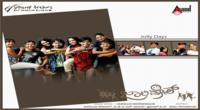
Jungle Love Full HD Movie Download

Love In Tokyo Full HD Movie Download

Bar Girls Full HD Movie Download

Do Knot Disturb Full HD Movie Download

Shatru Full HD Movie Download

Meri Zindagi Ek AGNEEPATH Full HD Movie Download

Gaalipata Full HD Movie Download

Bindaas Ladki Full HD Movie Download

Eraser Full HD Movie Download

Shaitan Mantrik Full HD Movie Download
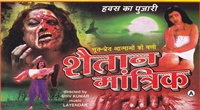
Siri Siri Muvva Full HD Movie Download

Assembly Rowdy Full HD Movie Download
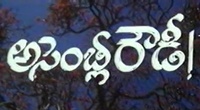
Pudhiavan Full HD Movie Download
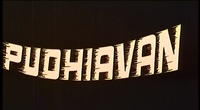
Oceans Twelve Full HD Movie Download

Bat Hunter Full HD Movie Download

Devi Parasakthi Full HD Movie Download

Jagat Khiladi Full HD Movie Download
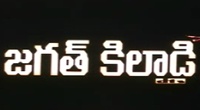
Rajanandini Full HD Movie Download
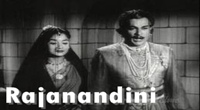
Aaina (1993) Full HD Movie Download
.jpg)
Download latest Movie from bollywood
- 1> baaghi 3
- 2> THE SKY IS PINK MOVIE FULL STORY AND REVIEW
- 3> Luka Chuppi
- 4> TO ALL THE BOYS I’VE LOVED BEFORE
- 5> Kabir Singh
- 6> Street Dancer 3D
- 7> Simmba
- 8> Gone Girl
- 9> The Girl Who Lived
- 10> Ludo
- 11> DILWALE DULHANIA LE JAYENGE
- 12> GUILTY
- 13> The Godfather
- 14> Adventures of Rusty
- 15> Sooryavanshi
- 16> Satyameva Jayate 2
- 17> Thappad
- 18> Bhool Bhulaiyaa 2
- 19> KGFChapter 2
- 20> Mardaani 2
- 21> Pinjar
- 22> Shivaji maharaj
- 23> Ek Villian 2
- 24> Hungama 2
- 25> Divergent
- 26> Mumbai Saga
- 27> The Internship
- 28> HIT (telugu)
- 29> Panga
- 30> The perfect date
- 31> 16 December
- 32> Gopala Gopala (Telugu)
- 33> Brahmastra
- 34> Gangubai Kathiawadi
- 35> Manmadhudu
- 36> Nenu local
- 37> Mahanati
- 38> Shatamanam bavathi
- 39> Lagaan
- 40> After
- 41> MOM
- 42> Shamshera
- 43> Raguvaran BTech
- 44> Khakee
- 45> The villain
- 46> OM
- 47> Mr. perfect
- 48> Bueatifull mind
- 49> Hichki
- 50> Gabbar Singh
- 51> Jogi
- 52> Before Sunrise
- 53> Before Sunset
- 54> Before Midnight
- 55> The Big Bull
- 56> Top Gun: Maverick
- 57> The Purge
- 58> The Sky is Pink
- 59> Laxmmi Bomb
- 60> Sadak 2
- 61> Sufna
- 62> Prithviraj
- 63> PK
- 64> Coolie No 1(2020)
- 65> Black Widow
- 66> Dear Zindagi
- 67> Dil Bechara
- 68> PHIR HERA PHERI
- 69> WAR
- 70> Dostana
- 71> RRR: Roudram Ranam Rudhiram
- 72> Maidan
- 73> Dabbang 3
- 74> Chhalaang
- 75> life as we know it
- 76> SherShaah
- 77> Sandeep Aur Pinky Faraar
- 78> Event Horizon
- 79> 83
- 80> Radhe: Your Most Wanted Bhai
- 81> Gunjan Saxena: The Kargil Girl
- 82> Mr India
- 83> Vivah
- 84> Anokha Bandhan
- 85> Ghost
- 86> Bhoot: Part One - The Haunted Ship
- 87> Haseen Dilruba
- 88> Laal Singh Chaddha
- 89> Qismat
- 90> Rajput
- 91> Drive
- 92> Dil Chahta Hai
- 93> Dil Ki Baazi
- 94> Dil Ka Rishta
- 95> Teesri Manzil
- 96> Dil
- 97> Love Aaj Kal
- 98> Khaali Peeli
- 99> Bunty Aur Babli 2
- 100> Atrangi Re
- 101> Gulabo Sitabo
- 102> Jodi
- 103> Suraj Pe Mangal Bhari
- 104> Deewana
- 105> Attack
- 106> Sardar Udham Singh
- 107> Toofan
- 108> THE LOVEBIRDS
- 109> Jersey
- 110> Ginny Weds Sunny
- 111> Thalaivi
- 112> Shiddat
- 113> Angels vs Zombies
- 114> Koi Mil Gya
- 115> Thank God
- 116> Bhuj: The Pride of India
- 117> Hum Aapke Hain Kaun
- 118> The Platform
- 119> Bird Box
- 120> Roohi Afzana
- 121> Torbaaz
- 122> Nikamma
- 123> World War Z
- 124> Extraction
- 125> Train to Busan
- 126> Life of Pi
- 127> SHAADI MEIN JROOR AANA
- 128> Himmat Aur Mehnat
- 129> To All The Boys: P.S. I Still Love You
- 130> Mimi
- 131> Good Newwz
- 132> Shubh Mangal Zyada Saavdhan
- 133> Raabta
- 134> Harry Potter and the Philosopher's Stone
- 135> Harry Potter and the Chamber of Secrets
- 136> Chhapaak
- 137> War of the Worlds
- 138> Harry Potter and the Prisoner of Azkaban
- 139> Harry Potter and the Goblet of Fire
- 140> MURDER MYSTERY
- 141> Shakuntala Devi
- 142> Bachchan Pandey
- 143> Jayeshbhai Jordar
- 144> Sheer Qorma
- 145> Saina
- 146> 'O' Pushpa I hate tears
- 147> Kedarnath
- 148> MS Dhoni The Untold Story
- 149> Chhichhore
- 150> Badhaai Ho
- 151> Unstoppable
- 152> Oz the Great And Powerful
- 153> The Girl on the Train
- 154> Haathi Mere Saathi 2020
- 155> The Conjuring: The Devil Made Me Do It
- 156> Gandhi Se Pehle Gandhi
- 157> The Song of Scorpions
- 158> Srimanthudu
- 159> Hello Guru Prema Kosame
- 160> Beauty and The Beast
- 161> Black Panther
- 162> Charlie and the Chocolate Factory
- 163> Bole Chudiyan
- 164> Fidaa
- 165> Duvvada Jagannadham
- 166> Bruce Lee: The Fighter
- 167> Hyper
- 168> Yaara
- 169> Red (2020)
- 170> Shivam
- 171> That Is Mahalakshmi
- 172> Nishabdham
- 173> Aashram 2020 web series
- 174> Laxmii
- 175> Mismatched
- 176> STUDENT OF THE YEAR 2
- 177> NAIL POLISH
- 178> Ramprasad Ki Tehrvi
- 179> KAAGAZ
- 180> 12 o Clock
- 181> The Power
- 182> bolo hau
- 183> Tribhanga
- 184> JAMUN
- 185> Madam Chief Minister
- 186> Maasaab
- 187> Aadhaar
- 188> Tanhaji
- 189> Bhaagi 3
- 190> Bhootnath
- 191> MALANG
- 192> Jai Mummy Di
- 193> Haathi Mere Saathi 2021
- 194> Shakeela
- 195> Unpaused
- 196> Annayya
- 197> Vamsoddharakudu
- 198> Mrugaraju
- 199> Narasimha Naidu
- 200> Sankranti
- 201> Manasu Maata Vinadhu
- 202> Anjaane
- 203> Apaharan
- 204> Bachke Rehna Re Baba
- 205> Bewafaa
- 206> Roohi
- 207> Radhe
- 208> Zindagi Khoobsoorat Hai
- 209> Yeh Mohabbat Hai
- 210> Yeh Kya Ho Raha Hai?
- 211> The Tomorrow War
- 212> DehradunDiary
- 213> Meri Shaadi Karaoo
- 214> Matruu Ki Bijlee Ka Mandola
- 215> No One Killed Jesica
- 216> Aag Ka Goola
- 217> Eight Million Dollars
- 218> Three Hundred
- 219> Cats and Dog
- 220> Decoy
- 221> Gold Rush
- 222> You Have Got Mail
- 223> Final Destination three
- 224> Tofan
- 225> Jungle
Request for Download movie Les Choristes
- Bollywood movies
- Latest Bollywood movies
- Download all bengali movies
- Download all bhojpuri movies
- Download all english movies
- Download all gujarati movies
- Download all hindi movies
- Download all kannada movies
- Download all malayalam movies
- Download all marathi movies
- Download all oriya movies
- Download all punjabi movies
- Download all tamil movies
- Download all telugu movies
- Bollywood action movies
- Bollywood adventure movies
- Bollywood animation movies
- Bollywood classical movies
- Bollywood comedy movies
- Bollywood crime movies
- Bollywood devotional movies
- Bollywood documentary movies
- Bollywood drama movies
- Bollywood family movies
- Bollywood fantasy movies
- Bollywood historical movies
- Bollywood history movies
- Bollywood horror movies
- Bollywood musical movies
- Bollywood mystery movies
- Bollywood mythological movies
- Bollywood patriotic movies
- Bollywood romance movies
- Bollywood romantic movies
- Bollywood sci-fi movies
- Bollywood social movies
- Bollywood spiritual movies
- Bollywood sports movies
- Bollywood suspense movies
- Bollywood thriller movies
- Bollywood war movies
- Hot actress list
- Hot gujarati actress list
- Hot tamil actress list
- Hot bhojpuri actress list
- Hot assam actress list
- Hot bihari actress list
- Hot jammu and kashmir actress list
- Hot gujarati actress list
- Hot haryana actress list
- Hot konkani actress list
- Hot marathi actress list
- Hot odia actress list
- Hot punjabi actress list
- Hot rajasthani actress list
- Hot kannada actress list
- Hot malayalam actress list
- Hot telugu actress list
- Hot tulu actress list
- Hot Actress list from Indian city
- Hot actress list from ahmedabad
- Hot actress list from alappuzha
- Hot actress list from bangalore
- Hot actress list from bangalore
- Hot actress list from bhopal
- Hot actress list from chandigarh
- Hot actress list from chennai
- Hot actress list from guwahati
- Hot actress list from hyderabad, india
- Hot actress list from indore
- Hot actress list from jaipur
- Hot actress list from kannur
- Hot actress list from kochi
- Hot actress list from kolkata
- Hot actress list from kollam
- Hot actress list from kottayam
- Hot actress list from kozhikode
- Hot actress list from lucknow
- Hot actress list from madurai
- Hot actress list from mangalore
- Hot actress list from mumbai
- Hot actress list from mysore
- Hot actress list from new delhi
- Hot actress list from patna
- Hot actress list from pune
- Hot actress list from thiruvananthapuram
- Hot actress list from thrissur
- Hot actress list from tiruchirappalli
- Hot actress list from vijayawada
- Hot actress list from visakhapatnam
- All Bollywood Movies
- Bollywood Celeb
- >Art Director
- >Audiography
- >Background Music
- >Banner
- >Choreographer
- >Cinematographer
- >Costume Designer
- >Dialogue Writer
- >Director
- >Distributor
- >Editor
- >Executive Producer
- >Hair Stylist
- >Lyricist
- >Music Director
- >Photographer
- >Playback Singers
- >Presenter
- >Producer
- >Production Company
- >Production Designer
- >Screenplay
- >Singer
- >Sound
- >Actor
- >Story Writer
- >Studio
- >Video Director
- >Miscellaneous
- >Publicity (pro)
- >Web Creator
- >Production Labs
- >Publicity Design
- >Publicity Stills
- >Writer
- >Miscellaneous Artists
- >Visual Effects
- >Reporter
- >Music Company
- >Shooting Studios
- >Picturised On
- >Line Producer
- >Co Producer
- >Asst Director
- >Casting Director
- >Cinematography
- >Choreography
- >Dialouge
- >Editing
- >Lyrics
- >Music
- >Story
- >Playback Singer Female
- >Playback Singer Male
- >Actor In A Comic Role (male/female)
- >Child Artiste
- >Ensemble Cast
- >Actor Popular Choice (male)
- >Actor Popular Choice (female)
- >Sa Re Ga Ma Pa Song Of The Year
- >Actor In Supporting Role
- >Actress In Supporting Role
- >Actor In Leading Role
- >Art Direction
- >Actress In Leading Role
- >Sound Recording
- >Costume Design
- >Special Effects
- >Action
- >Actor In A Negative Role
- >Lifetime Achievement Award
- >Cinematic Exellence (director)
- >Cinematic Exellence (male)
- >Cinematic Exellence (female)
- >International Male Icon
- >International Female Icon
- >Actor In A Supporting Role (male)
- >Actor In A Supporting Role (female)
- >Actor In A Comic Role
- >Playback Singer (male)
- >Playback Singer (female)
- >Most Promising Debut (female)
- >Most Promising Debut (male)
- >Most Promising Director
- >Sound Design
- >Lifetime Jodi
- >Marketed Film
- >Jury Award For Best Actor
- >Jury Award For Best Actress
- >Jury Award For Best Film
- >Jury Award For Best Director
- >Playback Singer(male)
- >Lifetime Acheivement Award (male)
- >Excellence Award
- >Jodi Award
- >Performer Of The Year
- >Presented By
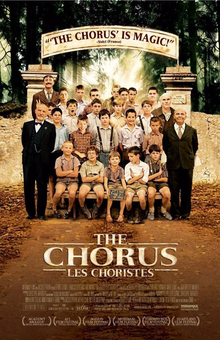 Story of movie Les Choristes :
Story of movie Les Choristes :